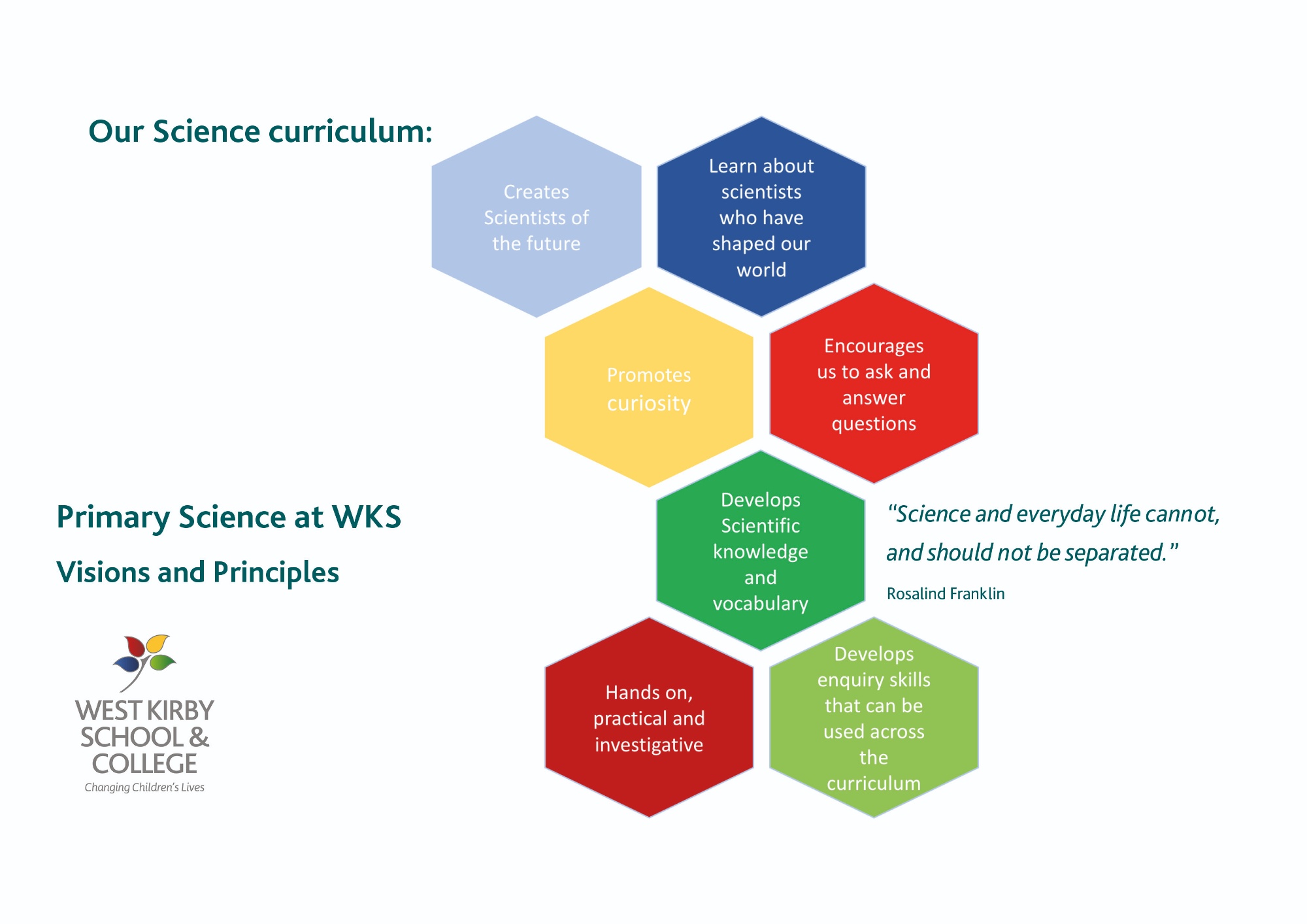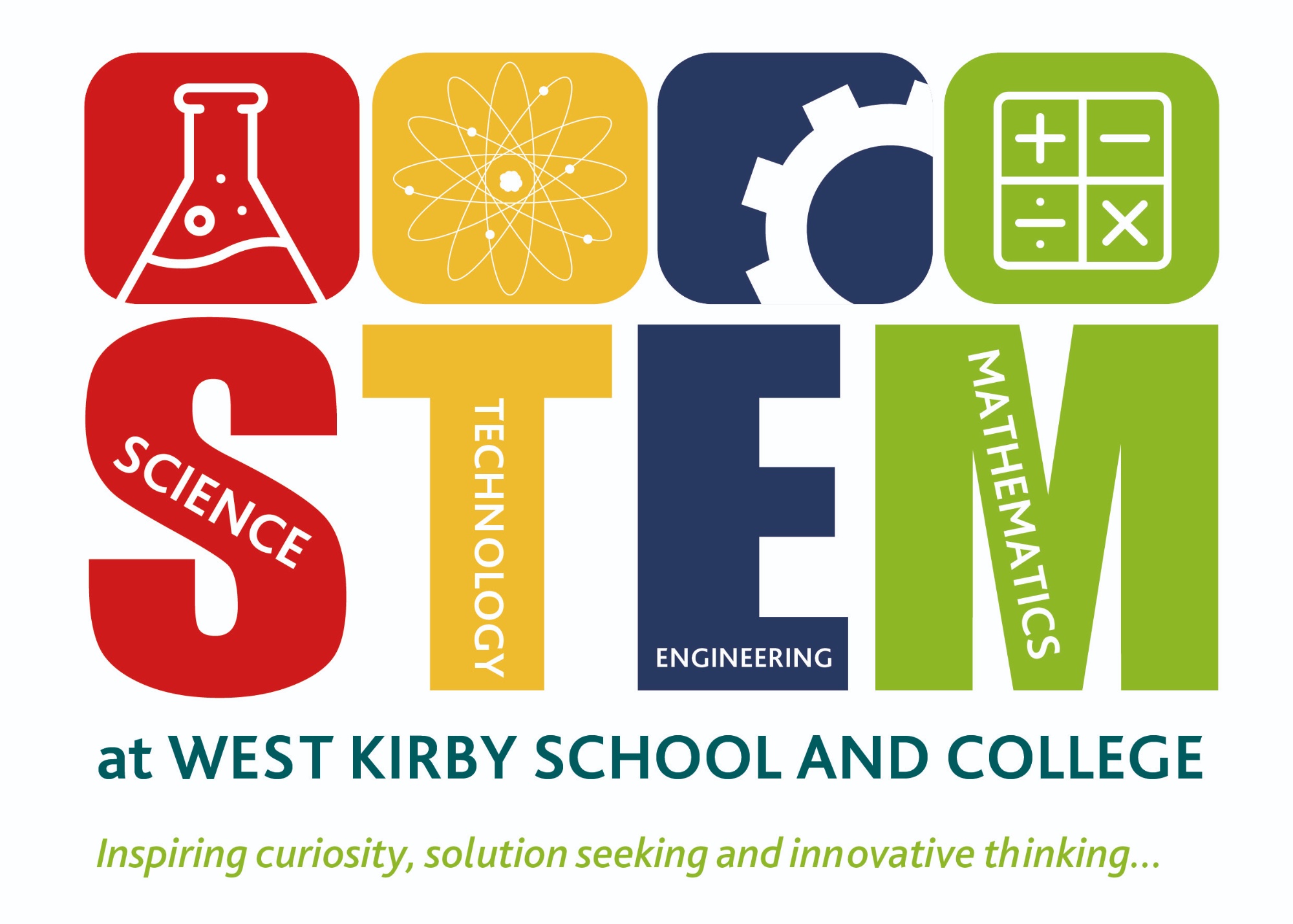Primary Science
Science is one of the core subjects that is studied by all students at Key Stages 1, and 2. All children receive at least one science lesson a week.
- Pathfinders have 1 hour dedicated Science teaching
- Adventurers have 1.5 hours dedicated Science teaching
- Navigators have 2 hours dedicated Science teaching.
- Pathfinders and Adventurers learn Science on a 2-year rolling program and Navigators has a 1-year program.
Across our Primary curriculum we aim to provide full coverage of the KS1 and KS2 National curriculum. Primary children follow a bespoke curriculum which covers the three strands of Science - Biology, Chemistry and Physics. We use the “White Rose Education” Science resources to support our learning.

Curriculum enrichment
To enrich our learning of Science, we have educational visits, STEM days, visiting specialists and this year, sustainability focus weeks.
Monitoring of Standards
Progress leaders and Science subject leaders constantly monitor standards in Science across school through a programme of book reviews, moderation, staff training and support and termly data analysis.

Primary STEM strategy
Science is one of our STEM subjects and integral to the delivery of the STEM Strategy.
Intent
At West Kirby School and College, we are committed to providing exciting opportunities to all our pupils that inspire curiosity and develop solution seeking, innovative thinkers who are confident with their technical skills, recognise the contribution they can make to the wider community by developing a growth mindset and have science capital in abundance.
Science capital is the science-related knowledge, attitudes, experiences and social contacts an individual may have. For our pupils, the more science capital they have and the greater the value placed on their science capital– the more likely they are to engage in STEM subjects or activities and recognise careers in STEM as a realistic option.
A growth mindset is the belief that skills and talents can be developed through hard work, the right strategies and guidance from others. By providing a wide range of new opportunities to our pupils and enabling them to recognise mistakes and trial and error form part of the learning process. STEM is a vital part of promoting the shift from a fixed to a growth mindset.
Implementation
We are able to do this through an aspirational and robust curriculum and our STEM strategy.
Our STEM subjects are:
- Science
- Design Technology
- Maths
- Computing
STEM also collaborates with the Creative Arts Department in school to provide STEAM activities and events.
- As part of our STEM strategy all pupils at West Kirby School and College will have the opportunity to:
- Experience quality first teaching
- Follow a well-planned curriculum that builds on developing knowledge, understanding, digital literacy and technical skills in STEM subjects with explicit cross-curricular links
- Take part in Discovery Days – designed to inspire, develop the STEM strands and put STEM subjects into real-life contexts
- Use up-to-date and emerging technology across STEM subjects to enhance their learning, understanding and skill level
- Take part in external STEM trips to places such as museums, universities, industry
- Explore the important role STEM plays in sustainability and protecting the planet
- Contribute to sustainable projects in school and the local community
- Meet and work with STEM professionals from a wide range of industries and backgrounds
- Explore STEM related careers
- Share their STEM related experiences with others and be encouraged to “talk STEM”
Impact
The successful approach to the teaching of Primary Science at West Kirby School and College will result in:
- Children will become resilient, independent and curious scientists who ask questions and find things out for themselves.
- Science will be a high profile subject throughout the school.
- Children will be enthusiastic and motivated scientific learners.
- Outdoor learning will be utilised where appropriate for science lessons.
- We will support science learning through trips and visits on a regular basis.
- Children will have an awareness of the full range of scientific careers and pathways available to them and will be keen to pursue STEM subjects at secondary school.
- Children will leave for secondary school equipped with the science knowledge and skills needed to succeed in their further education.